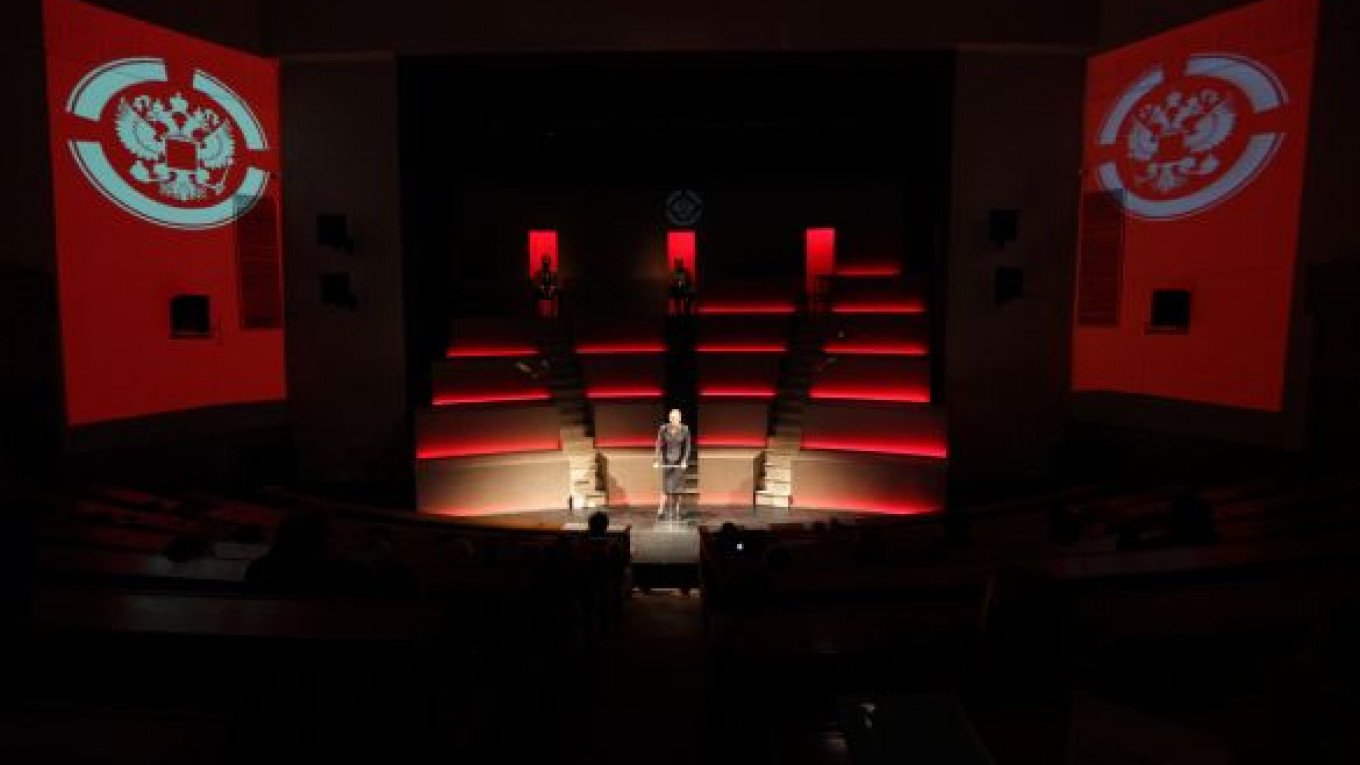It was in early 2011 that I heard playwright Maksym Kurochkin make a fascinating observation. He was in Austin, Texas, attending a festival of new Russian drama. At the time I was listening in on Skype.
Kurochkin talked about the "important" but "now unreadable plays" of the late 1980s; works, in his estimation, that had little lasting value but were significant in their response to, and influence on, current events. He declared that his impulse in writing is always to create a work of lasting merit but then added, "I feel we are entering a period when we must write plays that no one will care about in 10 or 15 years."
This is a problem that theater artists face whenever serious social or political unrest raises its head, as it has done in Moscow since December. Do I engage my contemporaries or a historical perspective? The two are not mutually exclusive. Bertolt Brecht, for instance, had a genius for responding to both. More often, however, a writer takes his or her pick.
These thoughts visited me as I recently sat in Moscow's newest venue, the Polytheater, which is run by Eduard Boyakov's Praktika Theater and located in the lecture hall of the Polytechnical Museum on Lubyanskaya Ploshchad. I was attending the premiere of Igor Simonov's "Choosing a Hero," a play set in the near future that responds on all cylinders to current events. But it is so schematic and simplistic in its method that, without those events to prop it up, it is surely disposable.
Simonov constructs the story of a film director who goes rogue and refuses to finish his film as his producer — the State Fund for the Support of Cinema — demanded. The state-controlled producer insisted that the final frames of the film demonstrate the Russian president efficiently solving all conflicts. The director agreed to the changes, but when he filmed the final scenes he stuck to his original plan that provided no answers or closure to the film's conflict.
Such is the backstory to what we witness onstage in Vladimir Ageyev's production of Simonov's play. We actually enter the tale when the director (Vladimir Mishukov) is on trial for embezzlement of funds. Everyone but his girlfriend (Alisa Grebenshchikova) has turned against him for refusing to play by the rules of the game. This includes a sleazy critic (Anton Kukushkin), the equally sleazy head of the State Fund for Support of Cinema (Boris Kamorzin) and a slippery private backer (Ageyev) who was once the director's friend. All are brought together by the acidic prosecutor arguing the case (Alla Kazakova) and the judge presiding over it (Sergei Nilov).
In short, we watch an individual stand up to the state as the state attempts to crush him with the weight of its power, in this case, using the catchy formula of "intellectual terrorism."
The actual space at Polytheater is a crucial player in this. This is a lecture hall, not a theater. Over the decades it has seen historical performances by Vladimir Mayakovsky in the 1920s and Vladimir Vysotsky in the 1960s. This imparts an unusual atmosphere to the proceedings.
In her set design, Alisa Melikova both embraced and bucked the nature of the space. She accentuated its nontheatrical aura by blocking up the entire stage with a huge vertical construction. The actors walk up and down sets of stairs in what amounts to a sheer wall. On the other hand, Melikova overcame the severe limitations of the space through the use of film — residential interiors, landscapes and abstract designs are projected on sidewalls to give the impression that we are being transported to various locations.
The performance consists primarily of the court process led by the prosecutor with flashback scenes popping up here and there. Ageyev stylistically leans on the usual set of familiar contemporary "genres" — a TV talk show, a courtroom drama and, when the prosecutor turns into something of a stripper, a mildly titillating pop show.
There is no doubt that in its best moments "Choosing a Hero" hits home as a carefully calculated satire of the current battle of mentalities prevailing today among ruling Russian politicians and the growing numbers of citizens with differing opinions. It's another thing that as soon as the battles and battle tactics change, I would expect "Choosing a Hero" to lose most of what little shelf life it has. Nevertheless, considering events on the streets these days, it makes for a meaningful, if somewhat obvious, evening of theater.
"Choosing a Hero" (Vybor Geroya) plays June 3 at 8 p.m. at Polytheater, located at 3/4 Novaya Ploshchad, Entrance No. 9. Metro Kitai-Gorod. Tel. 544-5545, 623-6916. . Running time: 2 hours.
A Message from The Moscow Times:
Dear readers,
We are facing unprecedented challenges. Russia's Prosecutor General's Office has designated The Moscow Times as an "undesirable" organization, criminalizing our work and putting our staff at risk of prosecution. This follows our earlier unjust labeling as a "foreign agent."
These actions are direct attempts to silence independent journalism in Russia. The authorities claim our work "discredits the decisions of the Russian leadership." We see things differently: we strive to provide accurate, unbiased reporting on Russia.
We, the journalists of The Moscow Times, refuse to be silenced. But to continue our work, we need your help.
Your support, no matter how small, makes a world of difference. If you can, please support us monthly starting from just $2. It's quick to set up, and every contribution makes a significant impact.
By supporting The Moscow Times, you're defending open, independent journalism in the face of repression. Thank you for standing with us.
Remind me later.







